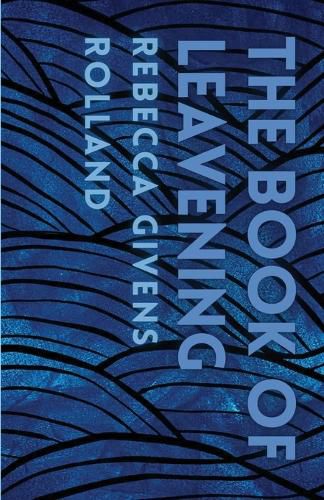Readings Newsletter
Become a Readings Member to make your shopping experience even easier.
Sign in or sign up for free!
You’re not far away from qualifying for FREE standard shipping within Australia
You’ve qualified for FREE standard shipping within Australia
The cart is loading…






This title is printed to order. This book may have been self-published. If so, we cannot guarantee the quality of the content. In the main most books will have gone through the editing process however some may not. We therefore suggest that you be aware of this before ordering this book. If in doubt check either the author or publisher’s details as we are unable to accept any returns unless they are faulty. Please contact us if you have any questions.
What if we "Fast forward a hundred years?" as the first poem in The Book of Leavening asks. Would our "voices turn votives: every hour/ candling from windowsill to sea"? Would we "find fortune in last casts of light?" These poems are deeply concerned with imagining a future far beyond our current lives.
Through free verse poems mixed with ghazals, the poet considers not simply the joys and storms of our current lives, but also how those joys and storms will ripple into future generations. Wrestling with questions of how the personal affects the universal, these poems interrogate milestones and rituals--marriage, childbirth, the loss of friends and relatives--to explore how these common passages feel from the inside. They also question the vows we make, personally, and as a civilization: "What can I do to love/ the way I promised?"
What happens, when our world seems to make it ever more difficult to define and live out one's values? What does one hear, when one listens deeply to what the landscape tells us? This narrator finds hope and even salvation in that deep listening; as she states, "I listen at times to backs of bread, / backs of books, fronts of hands. Listen/ so long, I question if anyone courts/ noise anymore." There may be no simple solutions--but, through the act of paying close attention, and directing compassion at what she sees, the poet shines a light on a hopeful path forward.
$9.00 standard shipping within Australia
FREE standard shipping within Australia for orders over $100.00
Express & International shipping calculated at checkout
This title is printed to order. This book may have been self-published. If so, we cannot guarantee the quality of the content. In the main most books will have gone through the editing process however some may not. We therefore suggest that you be aware of this before ordering this book. If in doubt check either the author or publisher’s details as we are unable to accept any returns unless they are faulty. Please contact us if you have any questions.
What if we "Fast forward a hundred years?" as the first poem in The Book of Leavening asks. Would our "voices turn votives: every hour/ candling from windowsill to sea"? Would we "find fortune in last casts of light?" These poems are deeply concerned with imagining a future far beyond our current lives.
Through free verse poems mixed with ghazals, the poet considers not simply the joys and storms of our current lives, but also how those joys and storms will ripple into future generations. Wrestling with questions of how the personal affects the universal, these poems interrogate milestones and rituals--marriage, childbirth, the loss of friends and relatives--to explore how these common passages feel from the inside. They also question the vows we make, personally, and as a civilization: "What can I do to love/ the way I promised?"
What happens, when our world seems to make it ever more difficult to define and live out one's values? What does one hear, when one listens deeply to what the landscape tells us? This narrator finds hope and even salvation in that deep listening; as she states, "I listen at times to backs of bread, / backs of books, fronts of hands. Listen/ so long, I question if anyone courts/ noise anymore." There may be no simple solutions--but, through the act of paying close attention, and directing compassion at what she sees, the poet shines a light on a hopeful path forward.